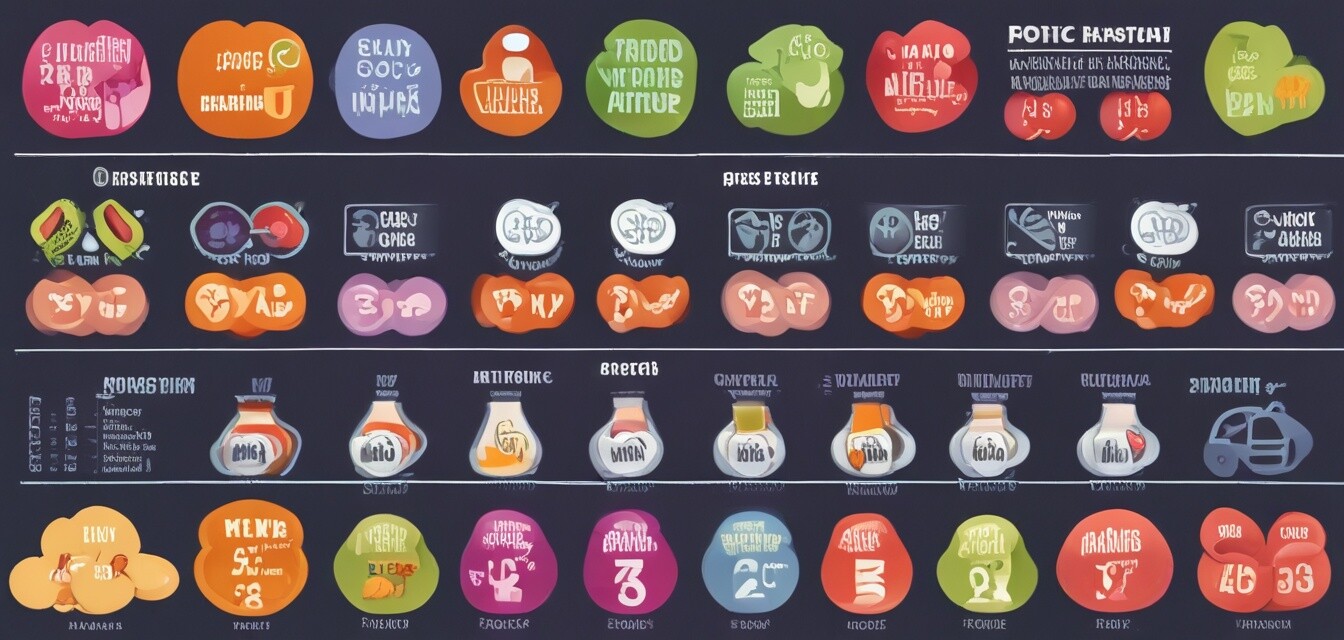
How Prenatal Vitamins Influence Baby's Genetic Health
- Prenatal vitamins play a crucial role in fetal development.
- Key nutrients include folic acid, iron, and DHA.
- Proper vitamin intake supports both maternal health and baby's growth.
- Consulting a healthcare provider about vitamin needs is advised.
During pregnancy, the health and well-being of both mother and baby is of utmost importance. Prenatal vitamins are specially formulated supplements designed to ensure that expectant mothers receive essential nutrients that may be lacking in their regular diet. This article delves into how prenatal vitamins can influence a baby's genetic health and development.
Why Are Prenatal Vitamins Important?
Prenatal vitamins are intended to fill nutritional gaps and provide key vitamins and minerals needed during pregnancy. Proper nutrition during this critical period is essential for fetal development and can even influence genetic health outcomes. These vitamins help in the prevention of certain birth defects and support healthy fetal growth.
Key Nutrients in Prenatal Vitamins
Some of the most important nutrients found in prenatal vitamins include:
| Nutrient | Role in Development | Food Sources |
|---|---|---|
| Folic Acid | Helps prevent neural tube defects | Leafy greens, fortified cereals |
| Iron | Supports increased blood volume | Meat, beans, spinach |
| DHA | Contributes to brain development | Fatty fish, algae |
| Calcium | Essential for bone growth | Dairy products, fortified plant milks |
| Vitamin D | Promotes healthy immune function | Sunlight, fortified foods |
Prenatal Vitamins and Genetic Health
There is growing interest in how specific nutrients found in prenatal vitamins can influence the genetic makeup and overall health of the baby. While no supplement can guarantee genetic perfection, ensuring proper nutritional intake can help optimize a baby’s development. Studies have shown that certain deficiencies can lead to complications in genetic expression.
Folic Acid and Neural Development
Folic acid is one of the most critical nutrients during pregnancy, especially in the first trimester. It plays a fundamental role in DNA synthesis and repair, contributing to proper neural development. Ensuring adequate folic acid intake may reduce the risk of neural tube defects.
Iron's Role in Genetic Health
Iron is another essential nutrient, as it supports the production of hemoglobin and overall oxygen transport in the body. Adequate iron levels can also help defend against certain pregnancy complications that might impact fetal development.
Choosing the Right Prenatal Vitamins
When selecting prenatal vitamins, it's vital to consider several factors:
- Consult with a healthcare provider to identify personal nutritional needs.
- Look for products that contain at least 400-800 mcg of folic acid.
- Check for additional nutrients like DHA and iron based on dietary habits.
- Consider allergen-free options if dietary restrictions apply.
Pros
- Supports fetal health and growth.
- Helps prevent birth defects.
- Offers key nutrients that might be deficient in diet.
Cons
- Not a substitute for a healthy diet.
- May cause side effects in some women.
- Pregnant women should consult healthcare providers before starting any supplements.
Conclusion
Prenatal vitamins serve as an important component of a healthy pregnancy by providing essential nutrients that can influence the genetic health of the baby. By ensuring a balanced intake of critical vitamins and minerals, mothers can support not only their health but also the healthy development of their child. Always consult a healthcare provider to determine the best prenatal vitamin regimen tailored to individual needs.
Further Reading
For more insights on maintaining health during pregnancy, check out our Healthy Pregnancy Tips section or explore more about Essential Prenatal Multivitamins to understand how they can offer support throughout your journey.
